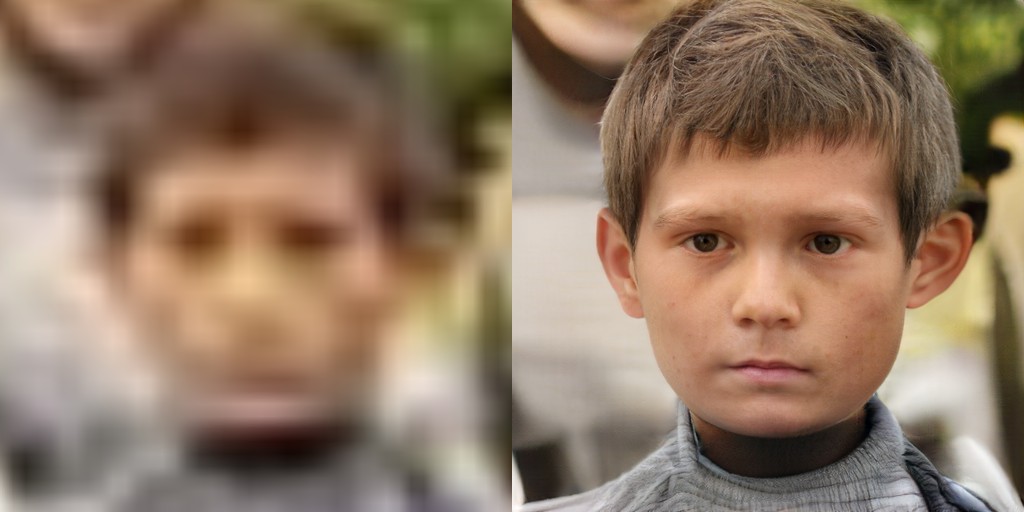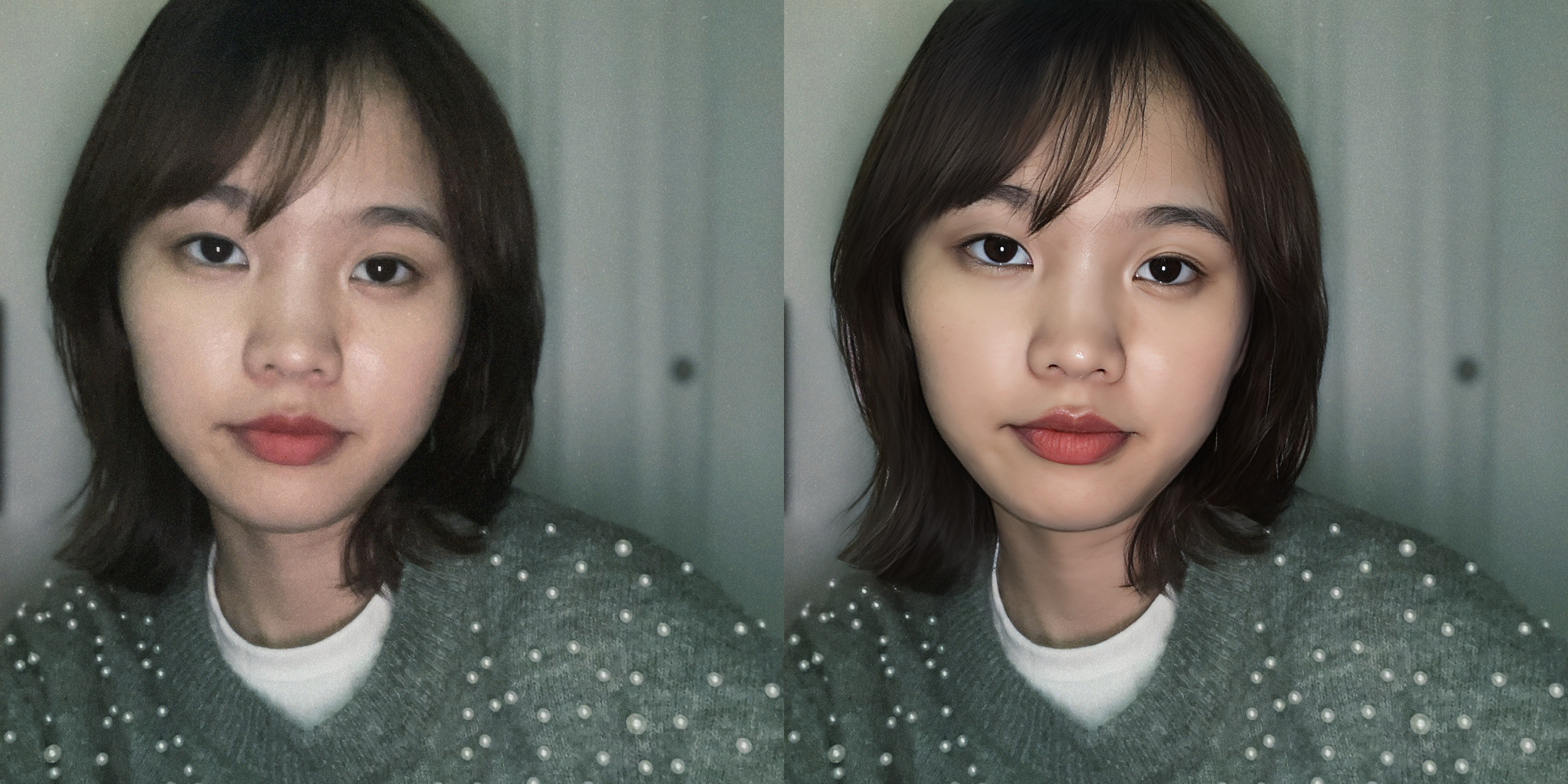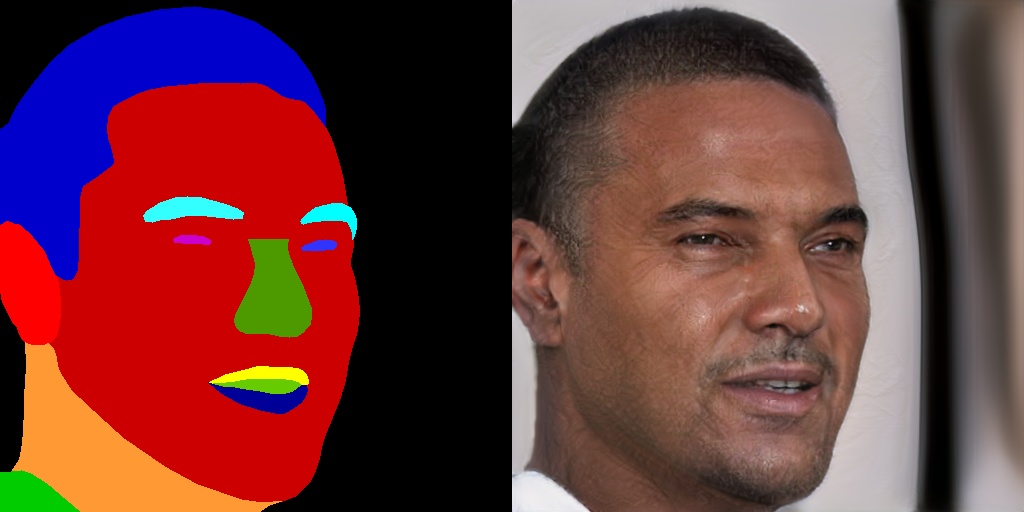Paper | Supplementary | Demo
Tao Yang1, Peiran Ren1, Xuansong Xie1, Lei Zhang1,2
1DAMO Academy, Alibaba Group, Hangzhou, China
2Department of Computing, The Hong Kong Polytechnic University, Hong Kong, China
(2022-05-16) Add x1 sr model. Add --tile_size to avoid OOM.
(2022-03-15) Add x4 sr model. Try --sr_scale.
(2022-03-09) Add GPEN-BFR-2048 for selfies. I have to take it down due to commercial issues. Sorry about that.
(2021-12-29) Add online demos 

(2021-12-16) Release a simplified training code of GPEN. It differs from our implementation in the paper, but could achieve comparable performance. We strongly recommend to change the degradation model.
(2021-12-09) Add face parsing to better paste restored faces back.
(2021-12-09) GPEN can run on CPU now by simply discarding --use_cuda.
(2021-12-01) GPEN can now work on a Windows machine without compiling cuda codes. Please check it out. Thanks to Animadversio. Alternatively, you can try GPEN-Windows. Many thanks to Cioscos.
(2021-10-22) GPEN can now work with SR methods. A SR model trained by myself is provided. Replace it with your own model if necessary.
(2021-10-11) The Colab demo for GPEN is available now .
- Clone this repository:
git clone https://github.com/yangxy/GPEN.git
cd GPEN- install requirements:
pip install -r requirements.txt
Note: This will install about 6 GB of packages to your system.
-
Download RetinaFace model and our pre-trained model (not our best model due to commercial issues) and put them into
weights/.RetinaFace-R50 | ParseNet-latest | model_ir_se50 | GPEN-BFR-512 | GPEN-BFR-512-D | GPEN-BFR-256 | GPEN-BFR-256-D | GPEN-Colorization-1024 | GPEN-Inpainting-1024 | GPEN-Seg2face-512 | realesrnet_x1 | realesrnet_x2 | realesrnet_x4
-
Restore face images:
python demo.py --task FaceEnhancement --model GPEN-BFR-512 --in_size 512 --channel_multiplier 2 --narrow 1 --use_sr --sr_scale 4 --use_cuda --save_face --indir examples/imgs --outdir examples/outs-bfr- Colorize faces:
python demo.py --task FaceColorization --model GPEN-Colorization-1024 --in_size 1024 --use_cuda --indir examples/grays --outdir examples/outs-colorization- Complete faces:
python demo.py --task FaceInpainting --model GPEN-Inpainting-1024 --in_size 1024 --use_cuda --indir examples/ffhq-10 --outdir examples/outs-inpainting- Synthesize faces:
python demo.py --task Segmentation2Face --model GPEN-Seg2face-512 --in_size 512 --use_cuda --indir examples/segs --outdir examples/outs-seg2face- Train GPEN for BFR with 4 GPUs:
CUDA_VISIBLE_DEVICES='0,1,2,3' python -m torch.distributed.launch --nproc_per_node=4 --master_port=4321 train_simple.py --size 1024 --channel_multiplier 2 --narrow 1 --ckpt weights --sample results --batch 2 --path your_path_of_croped+aligned_hq_faces (e.g., FFHQ)
When testing your own model, set --key g_ema.
Please check out run.sh for more details.
If our work is useful for your research, please consider citing:
@inproceedings{Yang2021GPEN,
title={GAN Prior Embedded Network for Blind Face Restoration in the Wild},
author={Tao Yang, Peiran Ren, Xuansong Xie, and Lei Zhang},
booktitle={IEEE Conference on Computer Vision and Pattern Recognition (CVPR)},
year={2021}
}
© Alibaba, 2021. For academic and non-commercial use only.
We borrow some codes from Pytorch_Retinaface, stylegan2-pytorch, Real-ESRGAN, and GFPGAN.
If you have any questions or suggestions about this paper, feel free to reach me at yangtao9009@gmail.com.


















